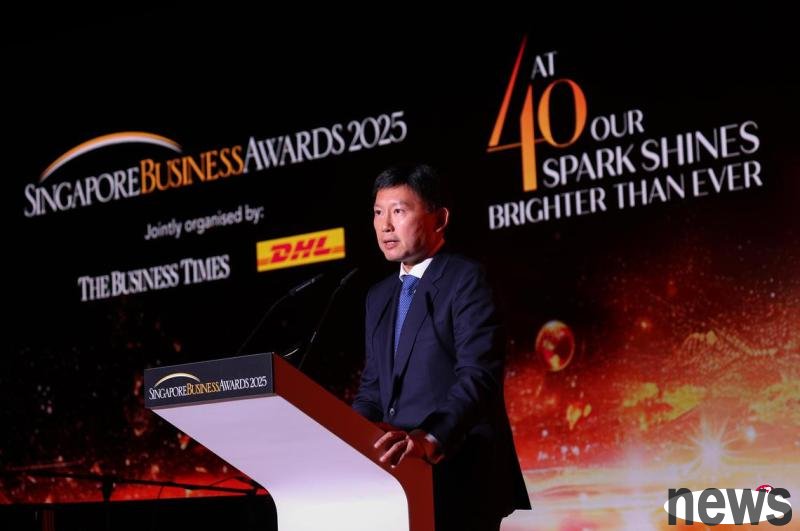
Xu Fangda said: "According to the agreement, our country and five other member states have basically cancelled all import tariffs; the remaining four countries have also reduced the tariff rate of nearly 99% of the tariff items to zero to 5%. This is not 100%, and obviously we still have room for efforts. Therefore, we are working to upgrade the agreement, including reducing non-tariff barriers, inclusion of sustainable trade standards, and other emerging priorities such as supply chain resilience."
In terms of human resources and enterprises, we are committed to improving employee skills and maintaining employment capabilities, promoting lifelong learning and employment; creating an ecosystem that encourages innovation; reducing red tape and building an environment that is conducive to enterprises with industry partners.
In the new cabinet announced by Prime Minister Wong Xuncai on Wednesday afternoon (21st), Xu Fangda will be transferred to the position of Minister of National Development and serve as chairman of the Chinese News Liaison Group.
In addition to establishing trade agreements, our country must also promote cross-border cooperation. Johor-Singapore Special Economic Zone (JS-SEZ) is one example. Xu Fangda believes that this allows companies to have more extensive access to talent resources and diversified supply chains. Enterprises can also make full use of our country's competitive advantages and the opportunities created by complementary places with Johor.
Singapore will take six major measures to strengthen our country's trust premium, including maintaining a strong trilateral relationship between governments, employers and trade unions; retaining key characteristics of long-term planning in governance; openly treating ideas, talents and investments from all over the world, and resisting separatist and xenophobic politics.
He added that the situation is changing rapidly today, and the final changes in global trade routes and supply chains are unpredictable. The government will do its best to ensure Singapore's important position in any case and continue to be a key stronghold for free and reliable trade circulation. Xu Fangda is happy to see that my country has established a powerful network composed of 28 free trade agreements and five digital economic agreements.
"We will strive to implement more bilateral and multilateral agreements, such as the Southern Common Market-Singapore Free Trade Agreement (MERCOSUR-Singapore FTA, referred to as MCSFTA), and we also welcome more like-minded partners to join the Comprehensive Progress Agreement for Trans-Pacific Partnerships (CPTPP)."
Based on this reality, he stressed that Singapore must adhere to an open attitude and further reduce and even eliminate trade and non-trade barriers to promote cooperation with partner economies. Singapore has been actively working with ASEAN countries to achieve these goals through the ASEAN Products Trade Agreement (ATIGA). This agreement will come into force in 2010.
Xu Fangda said that Singapore's competitive advantages include "trust premium". "Multinational companies continue to choose Singapore because they know that our country has clear rules, consistent policies and a friendly business environment."
Xu Fangda: Multinational corporations know Singapore's advantagesXu Fangda, Minister of Transport and Second Minister of Finance, believes that in the context of the increasing uncertainty of the global situation, ASEAN should accelerate the process of economic integration within the region and with other economic partners. He stressed that ASEAN is actively working to reduce trade barriers between member states while advancing sustainable trade standards and other emerging priorities.
Xu Fangda made such a statement when he delivered a speech at the 40th Singapore Business Awards ceremony on Thursday (May 22). This was also the last time he attended a public event as Minister of Transport and Second Minister of Finance.
Xu Fangda said that as the Singapore Economic Resilience Taskforce led by Vice Prime Minister and Minister of Trade and Industry Yan Jinyong continues to work, the government welcomes the industry to put forward valuable opinions on how to seize new opportunities. He said the government hopes to work closely with industry insiders on this.
This enables our country to build a dynamic financial service industry and become Asia's leading supply chain and logistics hub.
He mentioned in his speech: "At present, the United States is the world's largest economy, accounting for 13% of the total global imports. As some American leaders described, the United States is an 800-pound gorilla, but it is not the only gorilla. There are other gorillas and apes, and although they may not be 800 pounds in individuals, they combined have a total weight far exceeding 800 pounds."